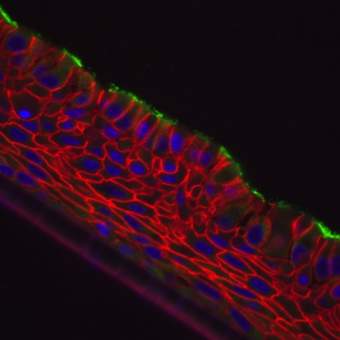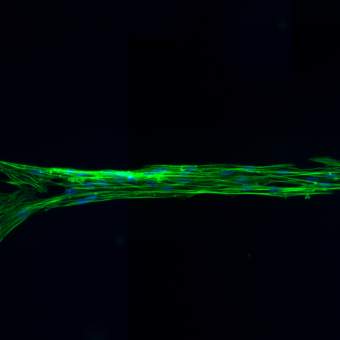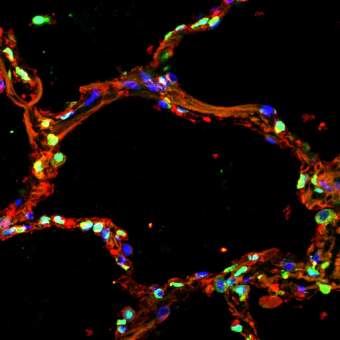
 Unité de recherche UMR1152
Unité de recherche UMR1152
UMR1152 is a Mixed Research Unit, placed under the dual supervision of Inserm and the University of Paris. It has been awarded the Initiative of Excellence (IDEX) label and comes from the merger of the universities of Paris Descartes, Paris Diderot, and the integration of the Institut de Physique du Globe de Paris. It depends on the Inserm Paris 5-7 Regional Delegation. This Unit was created on January 1, 2014 after evaluation by AERES (AERES evaluation of the unit), Inserm and Paris Diderot University. It was renewed from January 1, 2019 for a subsequent period of 5 years.

Inserm UMR1152 studies the risk factors and the cellular and molecular mechanisms involved in the onset and progression of respiratory diseases, in particular, asthma, chronic obstructive pulmonary disease (COPD), cystic fibrosis and pulmonary fibrosis, i.e. idiopathic origin (IPF), either associated with acute lung injury (ALI, and acute respiratory distress syndrome, ARDS). A research component concerning the cellular mechanisms involved in the rejection of lung transplants is also being developed. Clinical and basic research approaches are used to determine the origin of these diseases, in particular the inflammation and the structural cell abnormalities (epithelial and mesenchymal cells) that accompany them. Of particular interest is the study
(i) mechanisms involved in the loss of integrity of the respiratory epithelium, in alterations in the repair process and in its response to certain infectious agents (influenza virus, Pseudomonas aeruginosa, fungal agents, in particular Aspergillus fumigatus)
(ii) functional alterations of pulmonary fibroblasts and bronchial smooth muscle cells (survival / apoptosis, differentiation, migration, contraction, proliferation, activation) and anti-infectious responses of pulmonary macrophages.
Overall, the projects proposed by the teams that make up the Unit are as follows :
1) better understand the cellular and molecular mechanisms involved in inflammation and lung remodeling in the respiratory diseases studied and their complications, in particular pulmonary infections and acute and chronic pulmonary rejection;
2) identify the genetic, biological and histopathological determinants aimed at better characterizing, or identifying new patient phenotypes;
3) testing new therapeutic strategies to prevent or treat inflammation and lung remodeling and accompanying respiratory dysfunction.
These projects are based on transversal strategies including :
(i) studies on national and international multicenter cohorts using bio-statistical, biological and genetic approaches
(ii) the analysis of the expression of certain factors and new bio-markers at and away from the lung and the study of their correlation with the clinical parameters linked to the onset of the disease, its co-morbidities, progress and response to treatment
(iii) the identification of the functional role of these factors in healthy and pathological primary respiratory cells and in mouse models genetically manipulated and reproducing the main characteristics of the diseases studied.






